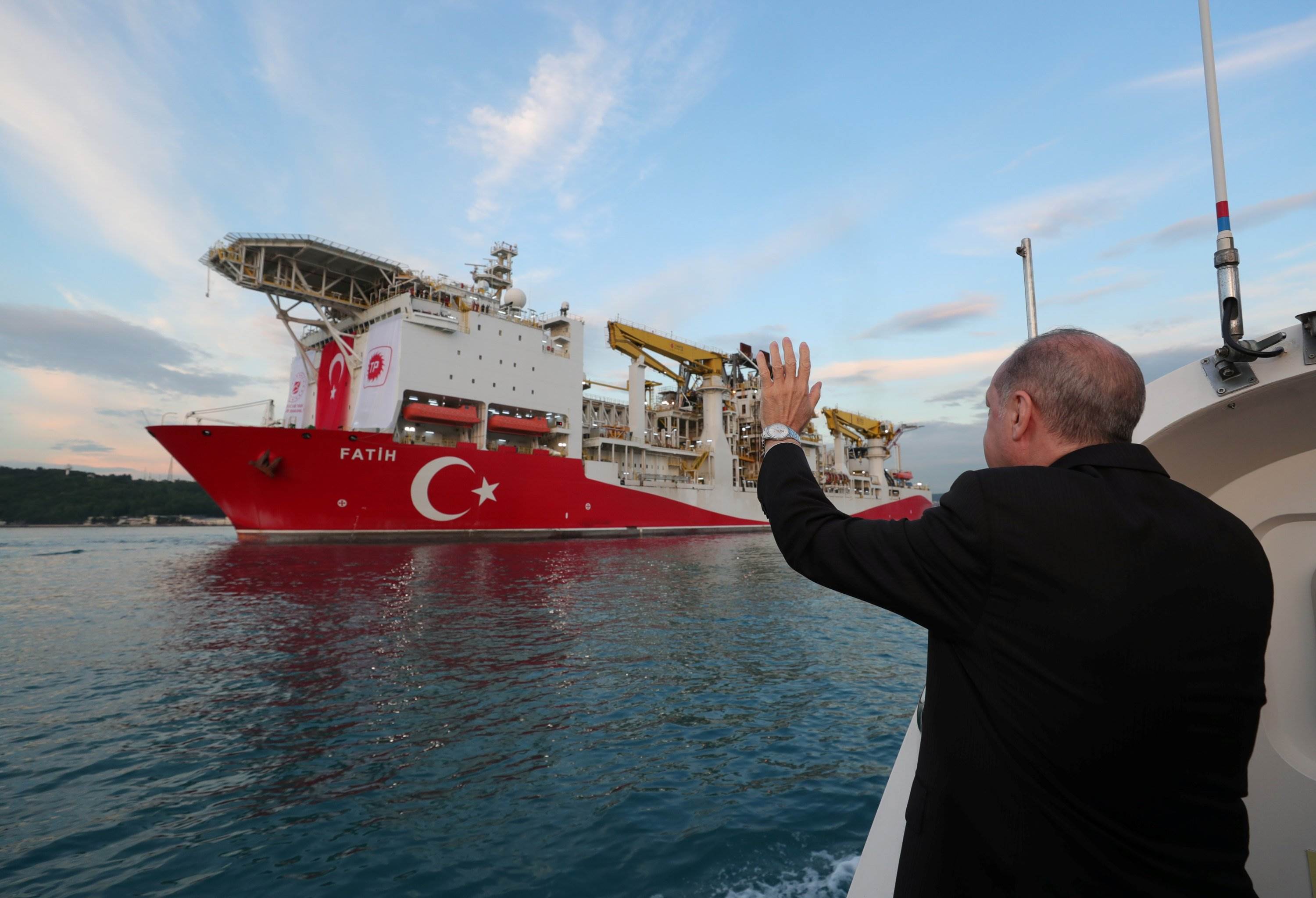Turkey hopes to begin using Black Sea gas in 2023
Ankara's ambitions of weaning itself off energy imports were reignited by the discovery of 405 billion cubic meters of natural gas in the Sakarya field in 2020.
-

Recep Tayyip Erdogan during a visit to Turkish Petroleum's Fatih drillship, Turkey, May 29, 2020 (Reuters)
Early in 2023, Turkey aims to begin producing and using natural gas from a newly discovered reserve off the Black Sea coast, according to Energy Minister Fatih Donmez.
Ankara's ambitions of weaning itself off energy imports were reignited by the discovery of 405 billion cubic meters of natural gas in the Sakarya field in 2020 - the country's largest ever. It intends to construct an energy hub in Filyos' port, where the gas will be landed.
During a visit to the building site of a gas processing facility in Filyos on Friday, Donmez informed reporters that the industrial complex might be operational in the first quarter of 2023.
Anadolu, Turkey's state news agency, cited him as saying, "After this facility has been connected to the grid, Black Sea gas will be used all across Turkey. The people of Turkey and the state will both benefit from it."
According to the energy minister, the processing plant's initial operational capacity would be 10 million cubic meters per day, increasing to 40 million cubic meters per day over time. He predicted that the industrial zone will grow to be the largest in Europe.
Turkey discovered an additional 135 bcm of gas in the Black Sea
According to Reuters, President Tayyip Erdogan announced on June 4th, 2021, that Turkey had discovered an additional 135 billion cubic meters of natural gas in the southern Black Sea, bringing the total discovery in the region to 540 billion cubic meters.
Erdogan announced at the opening ceremony in the Black Sea province of Zonguldak, "Our Fatih drill ship made a discovery of 135 billion cubic meters of natural gas in the Amasra-1 borehole in the Sakarya gas field."
Turkey, which has limited oil and gas reserves, relies heavily on imports from Russia, Azerbaijan, and Iran, as well as liquefied natural gas from Qatar, the United States, Nigeria, and Algeria. Last year, it imported 48.1 billion cubic meters of gas, up 6% from the year before, with a third of that coming from Russia.
Turkey has also been prospecting for hydrocarbons in the Mediterranean, where its operations in contested waters have exacerbated tensions with Greece and Cyprus.

 2 Min Read
2 Min Read








